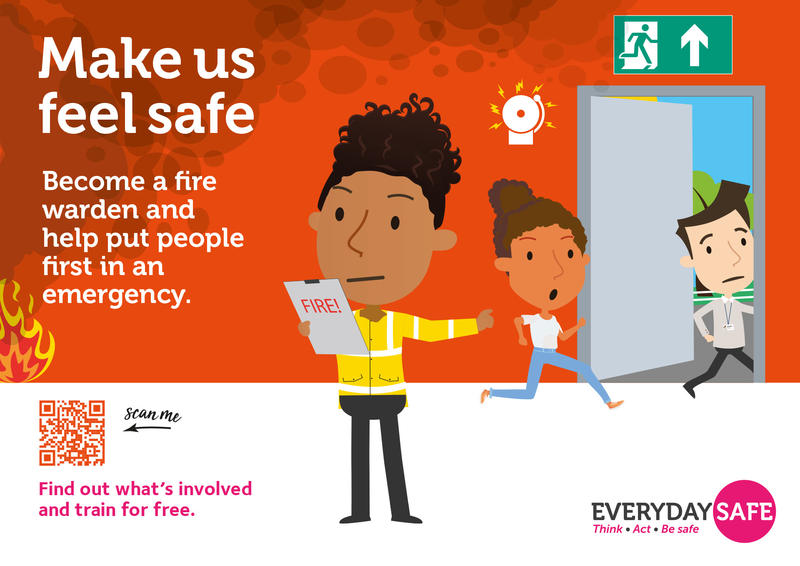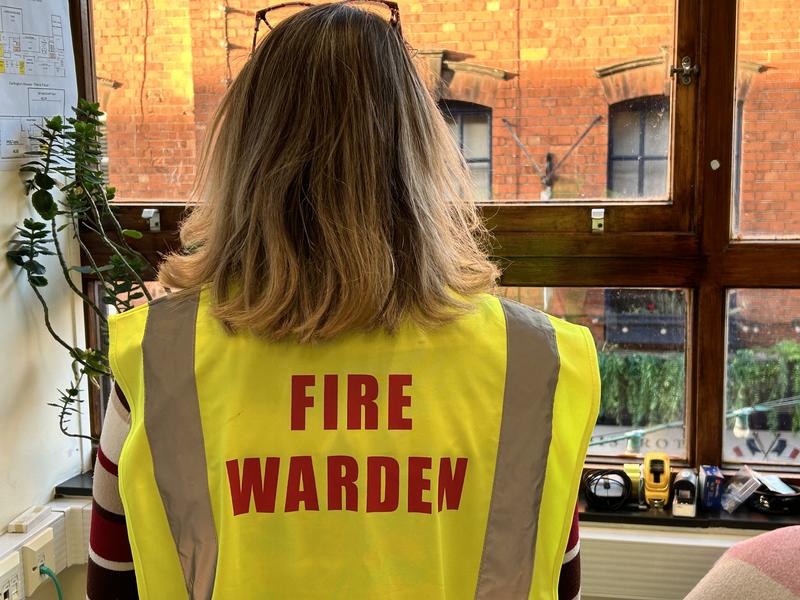In many of the University’s spaces, there isn’t an effective way of recording who is in or out of the building. In this case, fire wardens conduct a sweep of the building to confirm which areas are clear.
They play a key role in implementing emergency response procedures, including coordinating evacuations, assisting with crowd control, and ensuring that everyone in the designated area is accounted for. Fire wardens will often participate in fire drills to ensure that all occupants are familiar with evacuation procedures.
Wardens serve as a point of contact between building occupants and fire coordinators, with the latter overseeing the entire operation. They must be prepared to communicate crucial information to facilitate a coordinated and effective response.
Upon being asked what she’s learnt during her time as a fire warden, Jo responded:
‘People tend to rely on other people taking the lead, so what I like now is that it’s pushed from the grassroots up rather than leadership down. We’re all responsible and I’ve learnt that’s definitely the best way forward.’





